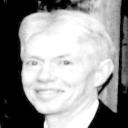Yahoo Answers is shutting down on May 4th, 2021 (Eastern Time) and beginning April 20th, 2021 (Eastern Time) the Yahoo Answers website will be in read-only mode. There will be no changes to other Yahoo properties or services, or your Yahoo account. You can find more information about the Yahoo Answers shutdown and how to download your data on this help page.
Trending News
metaphysics/maritain can someone explain this to me?
i dont understand this question/know how to answer it:
explain what it means to say that only what is necessary belongs to essence of anything that we understand, but what is accidental does not.
this isnt just trying to be lazy and get away with not doing hw. i dont get. plz help me understand this better. +10 pts for best answer. thnx
1 Answer
- elenchuskbLv 69 years agoFavorite Answer
If you are talking about Jacques Maritain in the "metaphysics/maritain" reference of your question, then you are asking about Aquinas's and Aristotle's ideas on the distinctions between substance [the individual unit and individual being], 2ndary substance [substance qualitatively differentiated; meaning genera or large classes and species or smaller classes of genera] and accidents, because Maritain got his ideas from Aquinas and Aquinas got his ideas [on metaphysics] from Aristotle.
Aristotle puts all thinking and all being into 10 Categories of Thought and of Being in his 1st Logic Treatise called [not strangely] THE CATEGORIES which are (1) SUBSTANCE (including genera and species called 2ndary substances by Aristotle) and the 9 ACCIDENTS which may be predicated [stated] of substance and which are (2) Quantity, (3) Quality, (4) Relation, (5) Place, (6) Time, (7) Position, (8) State [meaning "to have"] (9) Action and (10) Affection/passion.
In another logic treatise of Aristotle's, called THE TOPICS [with which both Aquinas and Maritain were familiar], Aristotle points out that human beings only argue about 4 general "things", which are (1) Genus, (2) Definition [a.k.a. species or ESSENCE] (3) Properties and (4) (strict) ACCIDENTS.
Formulable essence, nature and definition mean the same thing in Aristotle's philosophy. He argues in his Metaphysics treatise that nothing which is not a species of a genus has a definition/essence. So when Maritain [it seems] argues that "only what is necessary belongs to essence" he is saying that when anyone states the essence or the definition of anything they only state the things that make it what it is and they don't state any other "accidents" of it.
So for a geometrical example:- "Every triangle is a plane [2 dimensional], 3-sided, enclosed figure with 3 interior angles." --- states the essence/definition of a triangle. Some of the "accidents" of such a geometrical essence or definition, would be the quantitative dimensions of the triangle's sides [not stated in a definition or essence] or various colours [an e.g. of what Aristotle calls affective QUALITY; since colour affects our sense of sight] of triangles cut from various pieces of differently colored paper/s [again not stated in an essence or definition of "triangle"]. There are also various SPECIES of triangles [right triangles; equilateral triangles; isosceles triangles; scalene triangles] which I'll leave to dictionaries/geometers to define, but which are not defined by the strict accidents [with respect to triangles] of either colour [quality] or definite length [quantity].
So when Aristotle [Aquinas and Maritain too] talks about Genus, Species [definition; essence; nature], Property and Accident, he is not talking only about biological genera and species [as did Darwin in The Origin of The Species], but also of other sorts of genera and species in sciences [e.g. mathematics] or arts [e.g. grammar or rhetoric] other than biology. And though it is beyond the scope of this answer [since there is a length limitation] reading Aristotle's TOPICS may help you understand the distinctions between Genus, Definition [essence or nature] Property and Accident, based upon the way we PREDICATE [state] such things.
Aristotle bases the distinctions on CONVERTIBILITY of predication, which simply means the ability to switch the subject with the predicate of any sentence and retain [or not] the same meaning. If the meaning stays the same and means the same, you are stating either an essence (definition) or a property. A property is like an essence in that it is convertibly predicable. But a property, though convertibly predicable is not an essence.
eg. Every triangle is a 3 sided plane polygon. CONVERT Every 3 sided plane polygon is a triangle.
e.g. Every triangle's angles are equal to 180 degrees. CONVERT 3 interior angles equalling 180 degrees is a property of triangles. INDICATES the distinction between a property and a definition.
Strict accidents are never "convertibly predicable". You could say that Every triangle sketched on a green chalkboard, with yellow chalk is yellow and green. But to say that Every yellow and green thing sketched on a chalkboard [e.g. a sketch of the North American continent] is a triangle would be clearly false. So (strict) accidents are not "convertibly predicable" even though every definition is composed of statements concerning what might be called necessary or essential "accidents" because the QUANTITY [defined as the 1st accident of substances and the 2nd Thought Category] of "3" [as in 3 sides] is an ESSENTIAL in the definition or essence of a triangle for instance.
GENERA are seldom "convertibly predicable" for even though Every horse [species and individual] is an animal (true) it is not true that [predicating convertibly] Every animal is a horse (false).
Kevin
Source(s): Aristotle's Categories and Topics


